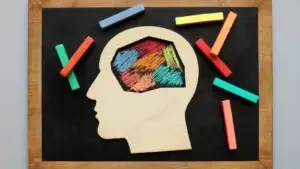Connecting Addiction and Emotions
Unresolved emotion and trauma are often at the root of addiction, no matter what it looks like. Addiction can take on many different faces. In the past, the term addiction was often just connected to illicit drug or substance abuse. However, addiction can involve substances (legal and illegal) or behaviors. Substance and behavioral addiction are equally serious and both require treatment from a mental health professional.

These feelings begin to creep into your everyday thoughts. Eventually, these feelings become louder, and you need something to quiet them down. Without therapy and proper tools, these unresolved emotions can pave the path towards addiction. These feelings begin to creep into your everyday thoughts.
Eventually, these feelings become louder, and you need something to quiet them down. Without therapy and proper tools, these unresolved emotions can pave the path towards addiction.
Where Does Addiction Come From?
Addiction is a symptom often rooted in a previous trauma or an individual dealing with a mental illness. In the past, trauma was often ignored without any treatment or consideration. It is normal for individuals suffering from trauma to utilize coping mechanisms. These can be a great way to work through mental health issues, but not all coping mechanisms are positive. These are a few examples of behaviors that individuals use to escape unresolved emotions. Many can develop into an addiction:
- Using controlled substances to numb pain or escape ongoing or past trauma and abuse.
- Excessive screen usage to create an alternate world or life.
- Restrictive eating as a means to create a situation that you can control.
- Overeating to fill a void and experience temporary happiness .


5. Gambling or Shopping to
generate a temporary
endorphin rush.
6. Self-harming to minimize the
internal pain.
7. Obsessing over work or.
school, so there is no time to
think about your past trauma.
Unresolved Emotions
Addiction is an example of a harmful coping mechanism. When someone experiences trauma, it is normal to seek comfort elsewhere. This temporary comfort will never heal the trauma, and the continued use and abuse of these outlets lead to addiction. Trauma can be caused by abuse, neglect, grief, physical or mental assault, chronic illness, and bullying. Trauma looks different for everyone, but you cannot control or predict how events will impact you. If you feel like you are unable to move forward or are headed down a dangerous path, reach out to a therapist.
Unresolved trauma and emotions will never go away on their own. No matter how hard you try to suppress these emotions, they will never disappear. Facing your past trauma is the only way to resolve it and move forward. Even if you are not taking part in risky behaviors to self-soothe, your unresolved emotions still impact you. Positive coping tools are important in your healing process, but that is still not getting down to the root cause. It is a great supplement, but it is not enough. Continuing to ignore this trauma will impact your relationship with yourself and others, making it hard to connect and find support.
Working Through Addiction and Unresolved Emotions with a Therapist
Healing from trauma and addiction may require working with multiple practitioners and treatment plans. Be patient with yourself and the process. Years of unprocessed emotion take time to work through and process. Finding a licensed mental health professional is imperative to successfully move forward and heal. Our therapy team at Renewed Wellness Counseling specializes in treating individuals suffering from addiction and working through trauma. If you are ready for us to help you on your healing journey, reach out for a free consultation today.








